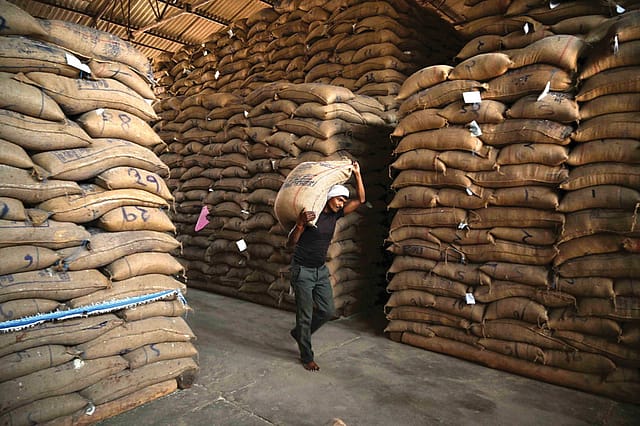Food stocks buffer India against global shortages

The Centre on Sunday said it had sufficient stock of foodgrains to meet domestic requirements. The claim was made even as arrivals of rice in mandis in Punjab, where the kharif marketing season has begun, remained tepid.
The latest data for the central pool of wheat and rice—for mid-September—showed that India remained in a very comfortable position. The government assesses the stock situation at four points in a year, at the start of April, July, October and January. This is over and above the strategic reserve of 50 lakh metric tonnes (20 rice and 30 wheat). On 16th September, the central pool had 465 lakh metric tonnes of food grains (224 of rice and 240 of wheat). Under five phases of the PM Garib Kalyan Yojna (PMGKY)—from April 2020 t0 March 2022—the Centre allocated about 759 lakh metric tonnes for around 80 crore persons. This was one of the major uses of foodgrains that otherwise remained piled up in government godowns.
So where does the concern about foodgrain availability come from? There are two sources of concern. One is the patchy distribution of the monsoon this year, especially in parts of Northern India leading to speculation that market arrivals of rice may be lower than what the advance estimates issued by the agriculture ministry predicted. The other concern is whether farmers will sell their produce to the government at the announced MSPs as global prices continue to be elevated.
These concerns exist against the background of war in Ukraine that has disrupted global supplies of foodgrains. This does not affect India directly as the country is self-sufficient on this score.
AIming High
20 Feb 2026 - Vol 04 | Issue 59
India joins the Artificial Intelligence revolution with gusto
The fear that farmers will divert their output to private sellers is more or less unfounded. Under the present system, crop transactions are done in government-controlled market yards by both private traders as well as agencies like the Food Corporation of India (FCI). This would have changed—and the farmers would have gained—had the three farm reform laws been passed. But farmers in North India opposed them and the old system continues. The government can buy as well as keep surveillance over private transactions in the current system. For now, India has plenty to spare on its plate.
